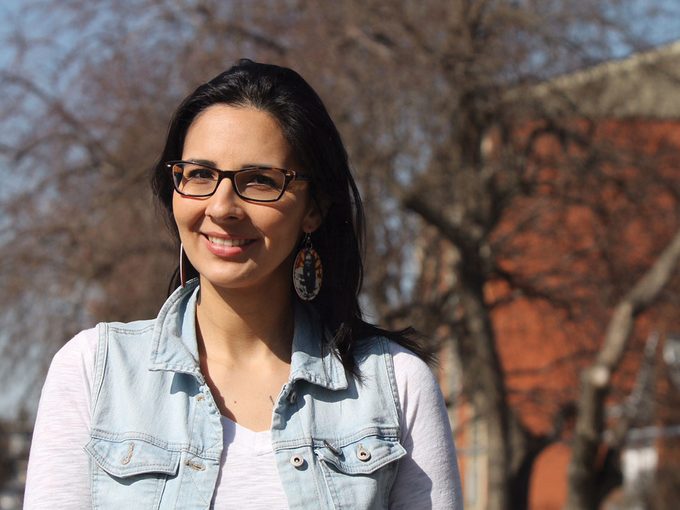Meet the Woman Fighting to Protect Alberta’s Ecosystem
This tireless Alberta-based environmentalist keeps one eye on the past and one on the future

Source: Best Health magazine, October 2015
Eriel Deranger’s first trip back to her childhood home in northern Alberta after 10 years away was shocking. ‘I felt like I couldn’t breathe,’ she remembers of the drive from Fort McMurray to Fort MacKay through the sites of some of the largest tar sands operations. ‘I saw destruction, no trees, smoke spewing out,’ she explains.
Deranger, then in her early 20s, knew she had to get involved to make change happen ‘ in part for the sake of her daughter, Jaida. ‘I didn’t want to see the places I knew as a child disappear, places that were important to me, my culture and identity and, by default, hers,’ says Deranger.
A member of the Athabasca Chipewyan First Nation, 36-year-old Deranger kept that promise. She is now a communications coordinator for her nation and an executive assistant to its chief, Allan Adam, and in that position, she has a challenge on her hands. ‘We don’t want to shut down the tar sands,’ she explains. ‘What we do want to see is a stop to its expansion into our traditional territory. There are currently no projects there, and we want to keep it that way.’
To that end, her nation is using everything in its power to draw a line in the sand. Aside from the legal challenges and rallies, they also host guests to tour their territories and the tar sands to get the word out about their impact. One recent well-known visitor was rocker Neil Young. He later held a tour to raise money for the nation’s legal defence fund, called Honour the Treaties.
‘These are not antiquated treaties,’ she explains. ‘My grandfather was alive when the treaty was signed for our nation, and these projects are complicit in the violation of treaty and aboriginal rights in Canada,’ she says. ‘For us, this is a rights battle, and our rights as indigenous people in Canada are intrinsically linked to the environment.’
Deranger lives in Edmonton with her daughter, who’s now 16, her four-year-old son, Uli, and her partner, Kelsey Chapman. ‘My children amaze and inspire me, and my husband has been so supportive of all the work I’ve done over the years,’ she says. ‘They are the driving force behind everything I do.’
As a girl, her family spent their summers on the land in a tent in northern Saskatchewan, often travelling to Fort McMurray to visit relatives. This is something she has tried to maintain with her kids. ‘We try to go out on the land at least once a year for a week of camping.’
‘This territory isn’t simply some place I want to save; it is my ancestral land,’ she says. ‘I have a deep-rooted connection to it. Athabasca Chipewyan First Nation is our colonial name that was given to us, but Denesuline [or K’ai Taile Denesuline] is the name of our people. It means ‘the people of the willow, people of the land,’ so our namesake is a reference to the delta. I want my children to know what that means. And if you destroy the entire Peace-Athabasca Delta, you are destroying the people who identify with this place.’
But Deranger is hopeful that her nation’s line in the sand may be respected thanks to the NDP’s election in Alberta. ‘This is necessary for the safeguarding of not only our people but also the entire ecosystem of the Peace-Athabasca Delta.’




